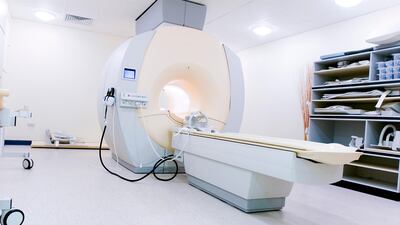An ultrasensitive blood test could be the key to detecting brain damage, predicting clinical outcomes, and identifying those at risk of dementia after a head injury.
A new study used a state-of-the-art test to track damage to the brain in people who have sustained traumatic brain injury (TBI).
The findings mean blood tests could provide similar information to magnetic resonance imaging scans, but in a more cost-effective and accessible manner.
Researchers suggest measuring the protein biomarker in the blood will provide a simpler, more accurate way to predict clinical outcomes.
They said it may help to identify those at higher risk of developing dementia.
Professor David Sharp is the senior author of the paper and director of the UK Dementia Research Institute’s (UK DRI) care research and technology centre at Imperial College London.
“Outcomes after TBI are very difficult to predict," he said. “What we need are more accurate diagnostic tests that can be used in our major trauma units and clinics.
“Our work shows that measuring neurofilament light soon after head injury helps to predict who will develop long-term problems.
“We are applying this in various contexts, including for the investigation of sporting TBI, and will be investigating whether this blood test can be used to predict those at high risk of developing dementia.”
Across the world, around 50 million people each year suffer TBI as a result of head injury.
In their brains, the nerve cells encounter severe forces which cause damage to the axons – the part which transmits electrical signals.
This damage is the best predictor of clinical outcomes and recovery but has been difficult to measure, researchers said.
The team from the UK DRI care research and technology centre set out to identify a chemical that could be easily detected in the blood – a biomarker – that would accurately reflect this axonal damage.
To do this, they began by detecting proteins that are important to the structure of the nerve cell axons.
Scientists found that measuring blood levels of neurofilament light, a protein important for axonal structure, provided an accurate long-term prognosis for the patient.
To validate the blood tests, the researchers used advanced types of brain imaging.
Dr Neil Graham is joint first author and Alzheimer’s Research UK clinical research fellow at the UK DRI’s care research and technology centre.
“I’m extremely excited by the ultrasensitive blood test technology we used here, as it has opened up a whole new world of possibilities when it comes to precise injury diagnosis and prediction of outcomes after head injury," he said.
“This is particularly useful in the area of dementia risk assessment after TBI, which is very challenging at present.
“If we could roll the neurofilament light test out across the country, it would be hugely impactful.
“We’re gearing up to offer it to NHS patients at Imperial in the near future.”
Dr Rosa Sancho, head of research at Alzheimer’s Research UK, said: “This work gets us closer to a blood test able to predict how brain changes develop up to one year after injury.
“Dementia develops over many years and we need to build on these findings to help improve longer-term prognosis and to reliably determine an individual’s risk of dementia following a head injury.”
The study involved more than 200 patients who had experienced moderate to severe TBI, recruited from eight trauma centres across Europe.
The study is published in Science Translational Medicine.


